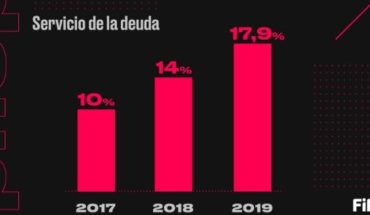Municipal services are the most daily and immediate form of interaction between citizens and the State. The universe of municipal services is very broad, including the collection of household solid waste, maintenance of public lighting, delivery of driver’s licenses, maintenance of green and recreational areas, among many (many) others. Unfortunately, the quality of these services can vary substantially between communes, which – without the need for a reasoned judgment – represents an expression of social inequality.
A set of reasons for these differences are found in the current municipal revenue system (DL No. 3,063 on Municipal Revenues). Both the tax base and the rates of taxes, permits, patents and duties, among other sources, are defined at the national level without considering the capacity to generate revenue and the levels of expenditure that each commune needs. Thus, by law, each municipality has a certain level of income based on which it must decide what to do and how to spend. As a consequence, an undesirable scenario is generated, where people are exposed to differentiated levels of public services, depending on their place of residence or work, for the sole merit of the socioeconomic characteristics of the territory they inhabit.
Conceptually, it is evident that there is a heterogeneity of income and expenses between municipalities, since the services demanded by each community vary according to the territory. The maintenance of recreational areas in rural areas is not the same as the provision of social protection services in places where there are different levels of poverty. However, to date, there are no systematic efforts to estimate what the level of heterogeneity needed is, and on what these differences could be based.
Whatever the case, if this heterogeneity translates into communal budgets per inhabitant that differ by five or six times in magnitude between communes that are not beyond a radius of 30 kilometers – as is the case with Vitacura and Las Condes with respect to Puente Alto and La Granja, in the Metropolitan Region – then we are directly facing a system that generates and perpetuates citizens of different classes.
It is imperative to modernize the municipal revenue system, addressing at least three urgent tasks:
Define common minimum standards of municipal services, differentiated between communes and urban and rural territories.
Define a mechanism of generation and equalization of income that allows to satisfy the desirable performance standards in the provision of municipal services to people, regardless of their location in the territory.
Provide municipalities with the capacity to raise resources from other sources such as local taxes (tourism, green taxes, redefinition of the patent collection system, urban services and others).
Additionally, it is urgent to create a Municipal Services Fund, a complement to the current Municipal Common Fund, constituted from improvements in spending efficiency, reallocations for structural adjustments – such as the demunicipalization of education – and other sources of financing. All this, added to a strategy to close service performance gaps, where benefits to people have an equitable standard of design and operation with respect to their location in the country, which will allow us to imagine a fairer municipal future.
Follow us on
The content expressed in this opinion column is the sole responsibility of its author, and does not necessarily reflect the editorial line or position of El Mostrador.





